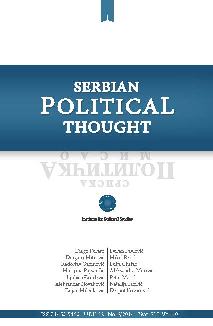Serbia in Constitutional Limbo: Democracy without Constitutionalism
Serbia in Constitutional Limbo: Democracy without Constitutionalism
Author(s): Ljubica Đorđević, Marijana PajvančićSubject(s): Politics / Political Sciences
Published by: Институт за политичке студије
Keywords: constitution; democracy; democratic transformation; Serbian Constitution; partocracy
Summary/Abstract: The paper addresses the problem of the constitutionalisation of the Serbian polity. The analysis in the paper goes in three parts. Part one examines whether there was a “window of constitutional opportunity” in Serbia after 2000, and we examine which peculiarities of the Serbian democratic tradition have burdened the constitutionalisation process. In part two we explore the weaknesses of the constitution of 2006. We examine the strategy of the constitutional continuity, as well as the procedural and substantive defects of the constitution which have led to its low legitimacy. In the final part we outline the incapability of the constitution to frame the political process, to limit the political power and to channel it into democratic institutions. Almost 14 years after the overthrow of Milošević and the initiation of the democratization process Serbia has not manage to substantially constitutionalize the polity. Despite the adoption of a new constitution in 2006, the bad tradition of façade-constituality was not broken. The over-hasty adoption of the constitution had led to violation of the procedure and to mixed quality of the constitutional provisions. From the very start the democratic legitimacy of the constitution was low, and it showed no capacity to channel the political power. The political players have shown no willingness to submit government actions to objective and impersonal rules. Furthermore, almost every stakeholder perceives the constitution as an interim act needed to be changed, which additionally undermines the authority of the constitution. Under such circumstances, the constitutional issue remains latently opened and the state is in a latent constitutional crisis. This corresponds with the specific para-constituality of the Serbian order in which the constitution is just a façade, and the power is not rooted in the state institutions but in the political party oligarchies. The constitution has not managed to diminish this dualism (nor was this the intention of the constitutional maker) and the democratization process in Serbia got stuck in some form of a pluralistic party state.
Journal: Serbian Political Thought
- Issue Year: 10/2014
- Issue No: 2
- Page Range: 69-87
- Page Count: 19
- Language: English

